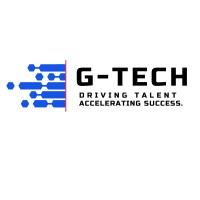

Compunnel Inc.
Tableau Developer
⭐ - Featured Role | Apply direct with Data Freelance Hub
This role is for a Tableau Developer with a contract length of "unknown" and a pay rate of "unknown." Key skills required include Tableau, data integration, automation, and Python. Remote work is expected, focusing on optimizing data ingestion and dashboard updates.
🌎 - Country
United States
💱 - Currency
$ USD
-
💰 - Day rate
Unknown
-
🗓️ - Date
October 1, 2025
🕒 - Duration
Unknown
-
🏝️ - Location
Remote
-
📄 - Contract
Unknown
-
🔒 - Security
Unknown
-
📍 - Location detailed
Chicago, IL
-
🧠 - Skills detailed
#Tableau #CRM (Customer Relationship Management) #Oracle #Migration #Python #Monitoring #Visualization #Scala #Security #Cloud #Automation #Data Integration #Power Automate #BI (Business Intelligence) #Logging #PeopleSoft #"ETL (Extract #Transform #Load)" #Documentation #Scripting #Data Integrity #Data Pipeline #Deployment #Data Governance #API (Application Programming Interface) #Data Ingestion #Data Warehouse #SharePoint
Role description
The purpose of this engagement is to engage consultants with expertise in Tableau, data integration, and automation to:
• Evaluate the current setup for inefficiencies and improvement opportunities.
• Design and implement automated data pulling mechanisms from multiple sources (detailed list is provided below) directly into Tableau Online, reducing or eliminating manual interventions.
1. Objectives
• Assess the current data ingestion and refresh processes in Tableau Online to identify bottlenecks, risks, and areas for optimization, with a focus on reducing the time required to update dashboards.
• Recommend and implement automated solutions for seamless data integration from up to 40 SharePoint files (and other sources as listed), supporting daily refreshes.
• Ensure the new setup improves data freshness, reliability, scalability, and user experience while aligning with best practices for data governance and security.
• Provide knowledge transfer to maintain and extend the automated processes post-engagement.
1. Scope of Services
The consultants will perform the following activities:
Phase 1: Discovery and Evaluation
• Conduct interviews with OIT/BI team to understand the current workflow, pain points (including dashboard update delays), and requirements.
• Review existing Tableau Online workbooks, data sources, extracts, and SharePoint integrations for up to 40 files with daily pulls.
• Map out all data sources involved (e.g., SharePoint files and others to be specified) and their formats.
• Identify potential automation tools and technologies (e.g., Tableau Prep, APIs, scripting with Python/Tableau APIs, or others; no restrictions specified).
• Document findings in a comprehensive evaluation report, including a gap analysis and high-level recommendations focused on streamlining dashboard updates.
Phase 2: Design and Planning
• Develop a detailed architecture for automated data pulling, including data pipelines, scheduling (daily refreshes), error handling, and monitoring.
• Propose integration strategies to connect multiple data sources directly to Tableau Online (e.g., live connections vs. extracts, hybrid approaches).
• Outline any necessary infrastructure changes (e.g., API endpoints, database permissions, cloud migrations, SharePoint automation).
• Create a proof-of-concept (PoC) for one or two critical data sources (e.g., sample SharePoint files) to validate the proposed automation and demonstrate reduced update times.
• Collaborate with CCC OIT/BI team to prioritize sources and define success metrics (e.g., reduction in manual effort, dashboard update time reduced).
Phase 3: Implementation and Testing
• Build and deploy automated data pipelines for all identified sources, handling up to 40 SharePoint files with daily automation.
• Configure Tableau Online for automated refreshes, including scheduling and notifications.
• Implement data validation, logging, and alerting mechanisms to ensure data integrity and quick issue resolution.
• Conduct thorough testing (end-to-end dashboard update performance).
Phase 4: Deployment, Training, and Handover
• Deploy the automated solution in a production environment with minimal downtime.
• Provide training sessions for the OIT/BI team on using and maintaining the new setup.
• Deliver comprehensive documentation, including user guides, architecture diagrams, and maintenance procedures.
• Offer post-deployment support for 2 weeks to address any issues.
1. Deliverables
• Evaluation Report: Detailed assessment of current setup with recommendations.
• Design Document: Architecture blueprint, data flow diagrams, and implementation plan.
• Proof-of-Concept Demo: Functional PoC for selected data sources.
• Automated Pipelines: Fully implemented and tested data integration solutions.
• Training Materials and Sessions: Hands-on training and supporting documents.
• Final Handover Report: Summary of changes, performance metrics (e.g., dashboard update time improvements), and next steps (end of engagement).
1. Assumptions and Dependencies
• CCC OIT/BI team will provide the detailed list of data sources.
• CCC OIT/BI team will provide access to all relevant systems, including Tableau Online, SharePoint files, and any necessary credentials.
• CCC OIT/BI team will be available for interviews and feedback within agreed timelines.
• No major changes to data sources or Tableau Online version will occur during the engagement.
• The consultant will work remotely.
• CCC OIT/BI team has the necessary licenses for Tableau Online and any additional tools proposed.
1. Out of Scope
• Custom development of new dashboards or visualizations in Tableau Online (focus is on data integration only).
• Migration of historical data or full data warehouse redesign.
• Ongoing maintenance beyond the initial 2-week support period.
• Integration with non-specified data sources or tools.
1. Resources and Team
• 1 Lead Consultant with Tableau, Tableau Prep, Data Integration, API, Python, Power Automate and PowerShell expertise.
• CCC OIT/BI team.
Data Sources:
1. OpenBook (CCC’s data warehouse)
1. Oracle Service Cloud
1. PeopleSoft – Campus Solution
1. Peoplesoft – Finance
1. PeopleSoft – HR
1. BetterUptime
1. SharePoint
1. Bonfire
1. Energy Star
1. Agiloft
1. Salesforce CRM
1. Qualtrics
1. B2gnow
1. ACENTO
1. Taleo
1. City of Chicago city boundary file
1. ICCB DAISI
1. Marketing Cloud
1. WordPress
1. Pardot
1. Microsoft SCCM
1. JAMF
Thanks, & Regards
The purpose of this engagement is to engage consultants with expertise in Tableau, data integration, and automation to:
• Evaluate the current setup for inefficiencies and improvement opportunities.
• Design and implement automated data pulling mechanisms from multiple sources (detailed list is provided below) directly into Tableau Online, reducing or eliminating manual interventions.
1. Objectives
• Assess the current data ingestion and refresh processes in Tableau Online to identify bottlenecks, risks, and areas for optimization, with a focus on reducing the time required to update dashboards.
• Recommend and implement automated solutions for seamless data integration from up to 40 SharePoint files (and other sources as listed), supporting daily refreshes.
• Ensure the new setup improves data freshness, reliability, scalability, and user experience while aligning with best practices for data governance and security.
• Provide knowledge transfer to maintain and extend the automated processes post-engagement.
1. Scope of Services
The consultants will perform the following activities:
Phase 1: Discovery and Evaluation
• Conduct interviews with OIT/BI team to understand the current workflow, pain points (including dashboard update delays), and requirements.
• Review existing Tableau Online workbooks, data sources, extracts, and SharePoint integrations for up to 40 files with daily pulls.
• Map out all data sources involved (e.g., SharePoint files and others to be specified) and their formats.
• Identify potential automation tools and technologies (e.g., Tableau Prep, APIs, scripting with Python/Tableau APIs, or others; no restrictions specified).
• Document findings in a comprehensive evaluation report, including a gap analysis and high-level recommendations focused on streamlining dashboard updates.
Phase 2: Design and Planning
• Develop a detailed architecture for automated data pulling, including data pipelines, scheduling (daily refreshes), error handling, and monitoring.
• Propose integration strategies to connect multiple data sources directly to Tableau Online (e.g., live connections vs. extracts, hybrid approaches).
• Outline any necessary infrastructure changes (e.g., API endpoints, database permissions, cloud migrations, SharePoint automation).
• Create a proof-of-concept (PoC) for one or two critical data sources (e.g., sample SharePoint files) to validate the proposed automation and demonstrate reduced update times.
• Collaborate with CCC OIT/BI team to prioritize sources and define success metrics (e.g., reduction in manual effort, dashboard update time reduced).
Phase 3: Implementation and Testing
• Build and deploy automated data pipelines for all identified sources, handling up to 40 SharePoint files with daily automation.
• Configure Tableau Online for automated refreshes, including scheduling and notifications.
• Implement data validation, logging, and alerting mechanisms to ensure data integrity and quick issue resolution.
• Conduct thorough testing (end-to-end dashboard update performance).
Phase 4: Deployment, Training, and Handover
• Deploy the automated solution in a production environment with minimal downtime.
• Provide training sessions for the OIT/BI team on using and maintaining the new setup.
• Deliver comprehensive documentation, including user guides, architecture diagrams, and maintenance procedures.
• Offer post-deployment support for 2 weeks to address any issues.
1. Deliverables
• Evaluation Report: Detailed assessment of current setup with recommendations.
• Design Document: Architecture blueprint, data flow diagrams, and implementation plan.
• Proof-of-Concept Demo: Functional PoC for selected data sources.
• Automated Pipelines: Fully implemented and tested data integration solutions.
• Training Materials and Sessions: Hands-on training and supporting documents.
• Final Handover Report: Summary of changes, performance metrics (e.g., dashboard update time improvements), and next steps (end of engagement).
1. Assumptions and Dependencies
• CCC OIT/BI team will provide the detailed list of data sources.
• CCC OIT/BI team will provide access to all relevant systems, including Tableau Online, SharePoint files, and any necessary credentials.
• CCC OIT/BI team will be available for interviews and feedback within agreed timelines.
• No major changes to data sources or Tableau Online version will occur during the engagement.
• The consultant will work remotely.
• CCC OIT/BI team has the necessary licenses for Tableau Online and any additional tools proposed.
1. Out of Scope
• Custom development of new dashboards or visualizations in Tableau Online (focus is on data integration only).
• Migration of historical data or full data warehouse redesign.
• Ongoing maintenance beyond the initial 2-week support period.
• Integration with non-specified data sources or tools.
1. Resources and Team
• 1 Lead Consultant with Tableau, Tableau Prep, Data Integration, API, Python, Power Automate and PowerShell expertise.
• CCC OIT/BI team.
Data Sources:
1. OpenBook (CCC’s data warehouse)
1. Oracle Service Cloud
1. PeopleSoft – Campus Solution
1. Peoplesoft – Finance
1. PeopleSoft – HR
1. BetterUptime
1. SharePoint
1. Bonfire
1. Energy Star
1. Agiloft
1. Salesforce CRM
1. Qualtrics
1. B2gnow
1. ACENTO
1. Taleo
1. City of Chicago city boundary file
1. ICCB DAISI
1. Marketing Cloud
1. WordPress
1. Pardot
1. Microsoft SCCM
1. JAMF
Thanks, & Regards






